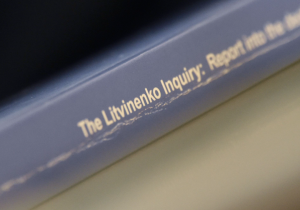By: Angelica Judge
Journal of Global Rights and Organizations, Associate Articles Editor
STRASBOURG, France – The European Court of Human Rights ruled in favor of Miroslava Todorova, a Bulgarian judge, on October 19, 2021 regarding a violation of her freedom of expression.

Todorova is a judge in the criminal division of Sofia City Court in Bulgaria, and was elected president of the Bulgarian union of Judges (BUJ) in 2009. During that time, she was publically critical of certain leadership decisions and statements within the Supreme Judicial Council (SJC).
A proposal was brought to the SJC Inspector General in July of 2011 for disciplinary proceedings to be instated against judges with a backlog of cases – with Todorova being named as one such judge. She suffered a salary reduction followed later by dismissal, and after a series of appeals, her case came before the ECtHR.
She alleged several claims under the European Convention on Human Rights, and the court found that her Article 10 right to freedom of expression had been violated. The court argued that “Those proceedings and sanctions could… have had a chilling effect on the applicant’s exercise of her freedom of expression and on that of all members of the national judiciary,” as a result of her previous comments criticizing the SJC. In coming to this decision, the court weighed what they felt to be an inadequate showing by the domestic authorities that the sanctions here were “necessary and appropriate to the legitimate aims pursued in the case.”
The ECtHR recognized that judges still must be subject to appropriate sanctions following breaches of professional duty due to exercising their right to freedom of expression. However, if the discipline is suspected of being retaliatory, the domestic authorities must show that the sanctions were legitimate.
Todorova had several other claims that were either unsuccessful, or were read in conjunction with the Article 10 violation. For example, the court did not find that there was a violation to Article 8 of the Convention, which provides for an individual’s right to respect for their private and family life. The basis for this claim was that the disciplinary proceedings caused significant media coverage that may have damaged her reputation. However, the court found that the media coverage was fairly balanced in terms of positive and negative attention. Proving this violation requires a standard of severity that the court felt was lacking.
Despite Todorova being unsuccessful in some of her claims, the court unanimously agreeing that there was a violation of her freedom of expression is a significant victory after a legal battle that had lasted for several years.
For further Information, please see:
European Court of Human Rights – European Convention on Human Rights – 2 Oct. 2013



